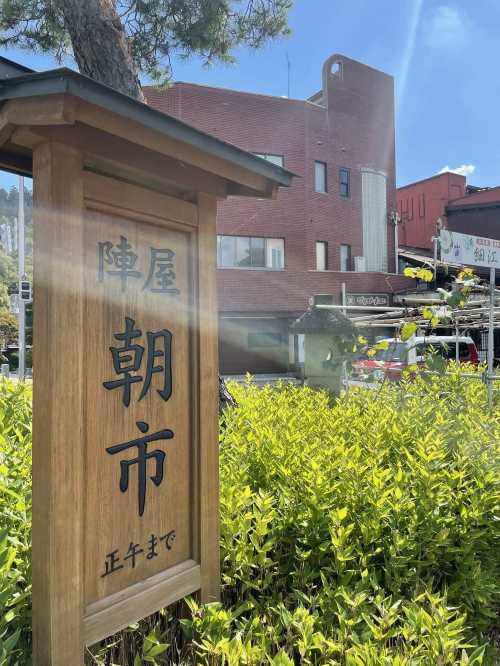Welcome to Takayama, the crown jewel of the Japanese Alps that will steal your heart and leave you planning your next visit before you've even left! This isn't just another historic town - it's a perfectly preserved slice of Edo-period Japan where ancient traditions thrive, world-class sake flows like mountain streams, and every corner reveals another breathtaking moment that belongs in a fairy tale!
🌸 What Makes Takayama Absolutely Magical
Takayama (高山市), known as "Little Kyoto of the Mountains," is a 400-year-old town that has maintained its authentic character while welcoming travelers from around the world. Nestled in the heart of the Japanese Alps at 1,200 feet above sea level, this UNESCO-recognized destination offers something truly special: the chance to experience genuine Japanese mountain culture in one of the country's most beautifully preserved historic settings.
The town is legendary for three extraordinary experiences: the mesmerizing morning markets that have operated in the same locations for over 1,000 years, the world-renowned Hida beef that melts like butter and costs less here than anywhere else in Japan, and the traditional ryokans where you can sleep on tatami mats surrounded by mountain views that change dramatically with each season.
🗺️ Your Complete Step-by-Step Takayama Journey
Getting There: A Scenic Mountain Adventure
By Limited Express from Nagoya (Recommended):
Take JR Wide View Hida Limited Express to Takayama Station (2 hours 20 minutes)
Cost: ¥5,500 (reserved seat recommended)
Pro tip: Sit on the RIGHT side for stunning mountain and river valley views!
Best departure times: 8:48 AM or 11:48 AM for optimal daylight scenery
By Highway Bus:
From Nagoya Bus Terminal: 4.5 hours (¥3,100) - budget option but much longer
From Tokyo: Overnight bus available (7 hours, ¥6,000-8,000)
Arrival Strategy: The moment you step off the train, breathe deeply - the crisp mountain air and pine forest scents immediately signal you've arrived somewhere special!
Phase 1: Historic Sanmachi Suji District - Step Into the Past (2 hours)
The Famous Preserved Streets Begin your adventure in Japan's most photogenic historic district, where three parallel streets (Sanmachi Suji) have remained virtually unchanged since the 1600s.
What You'll Experience:
Traditional architecture: Dark wooden buildings with overhanging second floors, white plaster walls, and intricate lattice windows
Sake breweries: Six active breweries offering tastings in 300-year-old buildings with giant cedar balls (sugidama) hanging outside
Traditional crafts: Watch local artisans create beautiful woodwork, textiles, and pottery using techniques passed down through generations
Atmospheric details: Stone-lined gutters carrying crystal-clear mountain water, traditional wooden signs creaking in the mountain breeze
Must-Visit Sake Breweries:
Funasaka Shuzo: Family-run for 10 generations, famous for smooth junmai sake
Harada Shuzo: Offers English tours explaining the brewing process
Kawashiri Shuzo: Hidden gem with tastings in a traditional kura (warehouse)
Photography Gold: Early morning (7:00-8:00 AM) provides magical lighting with mist rising from the streets, creating ethereal atmosphere shots!
Phase 2: Morning Markets - 1,000 Years of Tradition (1 hour)
Miyagawa Morning Market Experience one of Japan's most authentic market traditions, operating in the exact same location for over a millennium!
Market Experience Guide:
Hours: 6:00 AM - 12:00 PM (arrive by 8:00 AM for best selection)
Location: Along Miyagawa River - follow the mountain stream sounds
What to expect: 60+ stalls selling local vegetables, handmade crafts, pickles, mountain herbs, and seasonal specialties
Cultural immersion: Friendly elderly vendors who've been selling here for decades, many speaking basic English
Must-Try Market Foods:
Gohei-mochi: Grilled rice cakes with sweet miso glaze - a Takayama specialty for 400+ years
Takoyaki variations: Mountain-style with local ingredients
Seasonal pickles: Made with vegetables grown in the surrounding alpine valleys
Handmade manju: Sweet buns filled with local red bean paste
Jinya-mae Morning Market: Smaller but equally authentic, held in front of the historic government building.
Phase 3: Takayama Jinya - Samurai Government Experience (45 minutes)
Japan's Only Remaining Edo Period Government Building Step inside authentic samurai-era administration offices where you can literally sit where feudal lords made decisions affecting thousands of people.
Historical Immersion:
Tatami mat rooms: Experience traditional Japanese architecture with sliding doors, beautiful garden views, and period furniture
Interrogation rooms: See actual spaces where justice was administered during samurai times
Rice granary: Massive wooden storage facilities that fed the entire region
Traditional gardens: Perfectly maintained landscapes designed for contemplation and seasonal beauty
Interactive Elements:
Audio guides available: Detailed English explanations of daily life in feudal Japan
Seasonal exhibitions: Special displays featuring samurai armor, traditional documents, and local crafts
Photography opportunities: Traditional architecture with stunning mountain backdrops
Phase 4: Hida Beef Paradise - Culinary Heaven (1-2 hours)
The World's Most Incredible Beef Experience Hida beef isn't just food - it's a life-changing culinary experience that rivals Kobe beef but costs significantly less in its hometown!
Where Locals Actually Eat:
Ajikitcho Bunke Takayama: Family-run for 60+ years, serves perfect Hida beef at unbeatable prices
Hida Beef Maruaki: Casual atmosphere, incredible quality, locals' favorite lunch spot
Street food stalls: Hida beef skewers and buns available throughout the historic district
What Makes It Special:
Marbling perfection: The fat distribution creates incredibly tender, flavorful meat
Local preparation: Traditional cooking methods that highlight the beef's natural qualities
Mountain environment: The pristine alpine setting contributes to the cattle's exceptional quality
Unbeatable value: Premium beef that costs 2-3x more anywhere else in Japan
Dining Experience Tips:
Lunch sets: Best value, often including rice, miso soup, and pickles (¥2,000-4,000)
Tasting portions: Try different cuts to appreciate the complexity
Local beer pairing: Takayama craft beer complements the beef perfectly
Phase 5: Traditional Craft Discovery (1-2 hours)
Hida Folk Village (Hida no Sato) Experience authentic mountain village life in this open-air museum featuring over 30 traditional houses relocated from throughout the region.
Immersive Experiences:
Hands-on workshops: Learn traditional weaving, pottery, and woodworking from local artisans
Seasonal activities: Varies from spring rice planting to winter snow festivals
Traditional performances: Folk dances and music demonstrations
Architecture education: Understand the ingenious building techniques that withstand heavy mountain snow
Active Workshops Available:
Sarubobo doll making: Create Takayama's famous red good luck charms (¥800-1,200)
Traditional weaving: Learn techniques used for centuries (¥1,500-2,500)
Pottery classes: Make your own ceramics using local clay (¥2,000-3,500)
🏔️ Alpine Adventures and Seasonal Magic
Spring (March-May): Cherry Blossom Mountain Paradise
Sakura viewing: Less crowded than famous spots but equally beautiful
Mountain hiking: Trails accessible as snow melts
Fresh mountain vegetables: Spring specialties at morning markets
Summer (June-August): Festival Season and Alpine Hiking
Takayama Festival (April & October): One of Japan's three most beautiful festivals
Mountain climbing: Perfect weather for Japanese Alps exploration
Outdoor dining: Restaurant terraces with mountain views
Autumn (September-November): Fall Foliage Spectacular
Koyo (fall colors): Surrounding mountains explode in red, orange, and gold
Harvest season: Best time for local food specialties
Perfect weather: Crisp, clear days ideal for photography
Winter (December-February): Snow Country Magic
Winter illuminations: Historic district transformed with beautiful lighting
Snow activities: Skiing and winter sports nearby
Hot springs: Perfect onsen weather in mountain settings
🛁 Onsen and Accommodation Experiences
Traditional Ryokan Stays
Hidatei Hanaougi: Luxury mountain resort with private outdoor baths overlooking alpine valleys
Tanabe Ryokan: 300-year-old family inn where you sleep on tatami mats and wake to mountain views
Ryokan Murayama: Traditional atmosphere with modern comforts, famous for multi-course kaiseki dinners
Day-Use Onsen (Hot Springs)
Hirayu Onsen: 20 minutes by bus, natural outdoor baths in forest settings
Okuhida Onsen: Multiple hot spring resorts accessible by local transport
📸 Photography Strategy for Featured Content
Essential Shots for Trip.com Success
Cover Photo Option 1: Early morning mist rising from historic Sanmachi Suji streets with traditional dark wooden buildings and mountain backdrop - absolutely magical!
Cover Photo Option 2: Colorful morning market scene with elderly vendors, fresh mountain vegetables, and the flowing Miyagawa River - authentic Japanese culture in action!
Cultural Activity Shots:
Yourself participating in sake tasting at traditional brewery
Making traditional crafts (sarubobo dolls or pottery)
Enjoying Hida beef with genuine expression of amazement
Architectural and Landscape Details:
Traditional wooden buildings with intricate lattice work and hanging sugidama
Mountain views from various vantage points showing seasonal changes
Historic Jinya building with traditional gardens and mountain backdrop
Pro Photography Tips
Golden hour magic: 6:30-7:30 AM and 5:00-6:00 PM provide warm mountain lighting
Seasonal considerations: Each season offers completely different photo opportunities
Market photography: Early morning market scenes capture authentic daily life
Architecture details: Focus on traditional building techniqu























